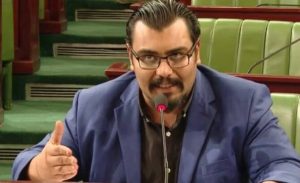Dani Alves breaks silence after release from Prison on bail

Recently, Dani Alves emerged from detention and spoke out for the first time since his release. The Brazilian international, after posting a bail of one million euros, secured conditional release following 14 months in preventive custody at the Brians 2 penitentiary center in Barcelona.
Faced with certain obligations to meet, Alves shared insights into his prison experience and new reality in an interview with Catalan media outlet El Periódico.
«This is what I have to do. Every Friday, I go to court, and that’s it. I don’t have much else to do. The match I have to play now is in court. But I have ‘no idea’ about the duration of ‘this match,’ until all appeals submitted by the parties (defense, prosecution, and public ministry) are resolved», he explained to the Catalan newspaper.
Regarding his life in prison, the 40-year-old defender disclosed, «Wherever I go, I survive. I adapt to everything because for me, it’s not the place that defines the person, but the person who defines the place».
Alves was sentenced to four and a half years in prison for sexually assaulting a young woman in the restroom of a nightclub in Barcelona, of which he has already served 14 months.






